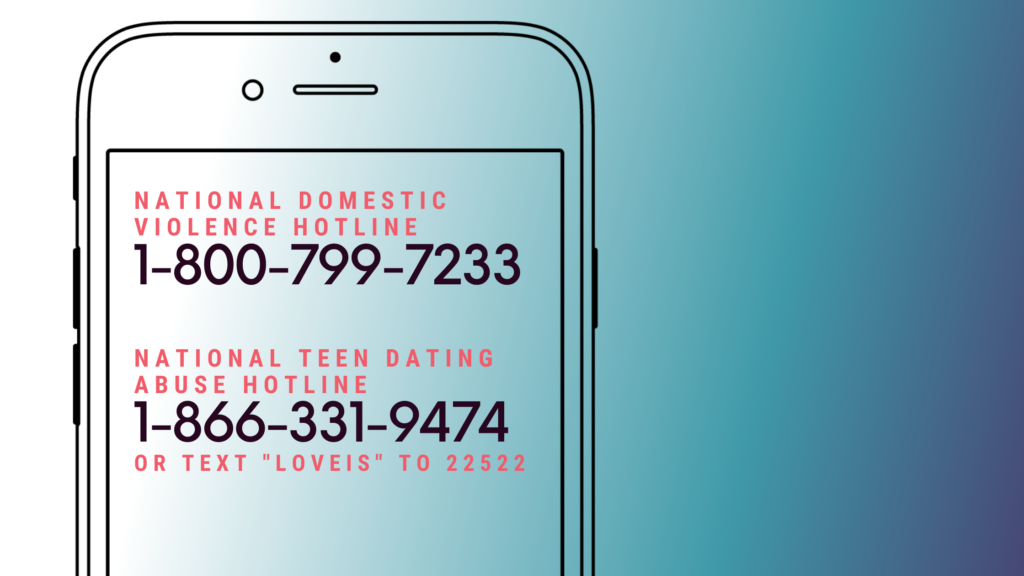Written by Betsy Abraham, Community Support Services
Domestic violence is a lot more common than you might realize. It can affect people close to us without us even knowing about it. Victims of domestic violence could be our neighbors, coworkers, family, friends, customers, teammates, church members, or students. That’s why it’s so important to understand what domestic violence looks like and how we can support someone we love if they’re affected.
What exactly is domestic violence?
Domestic violence is also sometimes called “intimate partner violence.” Contrary to what you might have heard, it’s not about jealousy, love, or a quick temper. What it comes down to is a pattern of power and control over a partner or ex-partner. This power and control can play out in several ways. They include:
- Physical abuse: punching, hitting, strangling
- Emotional/psychological abuse: isolating a partner from family/friends, threats, stalking
- Sexual abuse: forcing a partner to have sex, forced touching, rape
- Financial abuse: withholding money, keeping a partner from working, or harassing them at the workplace
- Verbal abuse: name-calling, talking down to a partner
- Technological/digital abuse: tracking a partner’s location, changing the password on smart devices
- Reproductive coercion: Refusing to use protection during intercourse, forcing a partner not to use birth control
The Importance of Domestic Violence Awareness
Domestic violence isn’t always obvious but data shows that it happens much more than we want to admit. About 1 in 4 women and nearly 1 in 10 men have experienced intimate partner violence. That can mean sexual violence, physical violence, or stalking. It occurs at high rates in the LGBTQ community, too. One in four LGBTQ individuals reports abuse by a partner.
This is not just a problem nationally. It hits close to home at even higher rates. In North Carolina, 35% of women and 30% of men have experienced intimate partner physical violence, intimate partner sexual violence and/or intimate partner stalking.
It’s important to point out that there is no “typical” victim of domestic violence. Victims can range in age, gender, cultural background, education level, economic level, abilities, lifestyle and personality. The same goes for abusers. In many cases, they are male, but not always. Like their victims, each abuser is different. However, there is one thing they all have in common: feeling entitled to power and control over their partner.
Help is Available
If you or someone you know is in an abusive relationship, help is available. In fact, we offer several services through our own Mecklenburg County Community Support Services division.
We have confidential counseling for victims and witnesses of all ages, both in-person and virtually. These services are available in English, Spanish (Programa Confianza), and other languages with interpreters. Do you need a public place to bring your child for a custody exchange? We also offer supervised visitation and safe custody exchange for families impacted by domestic violence. This can help decrease the opportunity for abuse.
There are other options for domestic violence victims too. Our partner Safe Alliance runs the Greater Charlotte Hope Line. They offer local, confidential, 24/7 support for domestic violence and sexual assault. Call 980-771-4673. There’s also a national domestic violence hotline. Teens experiencing dating abuse have their own line.

Abusers who want to work on their abusive behavior may benefit from intervention services. We offer the NOVA program. NOVA is New Options for Violent Actions. Most candidates find the program by court order or a partner agency referral, but sometimes we accept volunteers who meet certain criteria. Call 704-336-4344 for information about NOVA (980-314-3991 Espanol).
How can I be an ally?
If you know someone in a domestic violence relationship, one of the best things you can do is simply let them know you care. If you’re worried that someone’s in an abusive relationship:
- Share that you’re concerned.
- Let them know you’re there for them and that you believe them when they share their story.
- Listen without judgment.
- Encourage them to seek help or to make a safety plan.
- Don’t make decisions for them.
Abusers often try to isolate their victims. So the important thing is that you try to maintain contact with your loved one and be an encouraging voice.
We Hear You
Above all, if you’re experiencing domestic violence, know that someone is willing to help you. You can find them by phone or online. If someone you know and love is experiencing domestic violence, believe them and let them know their options. Our Community Support Services Department works with community partners to support the whole family.
